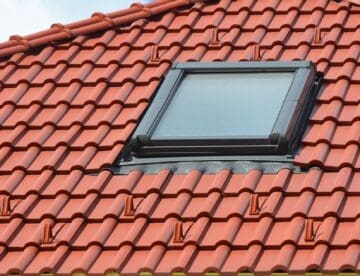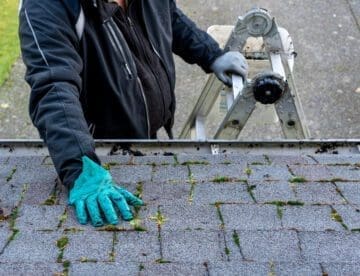Roofs in Florida must withstand extreme weather conditions throughout the year. Factors like year-long sunshine, hurricanes, heavy rain, and intense heat can take a toll on your roof. This means that roof repairs in the Sunshine State are more frequent than in other parts of the country. So, it’s no wonder that homeowners face enormous climate challenges in Florida when it comes to homeowners insurance.
Getting proper insurance coverage to protect your roof is crucial in Florida. However, it’s also wise to be proactive regarding future-proofing your roof against climatic challenges. This can minimize your reliance on insurance coverage and keep your roof in good repair.
This article examines various ways to ensure your roof withstands Florida’s climate and how you can maximize your homeowners insurance for the best protection.
The Florida Climate Challenge: Understanding Florida’s Unique Weather Patterns
Florida’s unique weather patterns pose a significant challenge when it comes to protecting your roof. The state’s hot and humid climate, frequent heavy rain showers, and the potential for intense hurricanes all place immense stress on a home’s roof. These factors can cause roofing materials to deteriorate quickly.
There are four primary challenges that Florida’s climate has for homeowners and how they affect the integrity of your roof:
- Sunshine: Data shows that Florida gets between five and nine hours of sunshine every day. April and May are the sunniest months. The sun’s UV rays can quickly fade shingles and damage the top layer of roofing material.
- Humidity: In September, relative humidity in the Sunshine State can reach 78 percent. Unfortunately, high humidity can cause mold growth and damage roofing materials. Moisture and heat can shorten the lifespan of asphalt shingles.
- Heat: Florida is one of the warmest states in the US, with average temperatures of 28 degrees. Hot air, together with moisture and UV rays can damage roofing materials.
- Hurricanes: Florida experiences the most number of hurricanes in the US. These can cause winds of at least 74 mph. However, gusts of wind above 40 mph are enough to damage roof flashings and shingles.
Insurance Woes: The Impact of Climate Change on Homeowners Insurance
Climate change has severely impacted homeowners insurance premiums in Florida. Severe storms, intense heat, and strong winds mean an increased risk of roof damage. Therefore, insurance companies up their premiums to cover increased claims for roof repairs and replacements.
It seems that Florida doesn’t only take a battering from severe storms. Florida homeowners are hit hard more than others in the country when it comes to insurance premiums.
The Miami Herald reported in June 2023 that the cost to insure residential property in Florida has skyrocketed by 57 percent since 2015. This is more than three times the national average. Other reports show that many insurers no longer offer Floridians home insurance.
Choosing the Right Roofing Material for Florida’s Climate
The best way to protect your roof in the Sunshine State is to choose the right roofing material. Maintaining a strong, durable roof that can withstand Florida’s hot and humid climate will cut roof repairs, keep insurance premiums down, and increase your property’s value.
Here are some popular options for roofing materials in Flordia with their pros and cons:
- Metal Roofs: Metal roofing material is highly durable and ideal for Florida and can last for 40 to 70 years. Metal roofs are fire-resistant and can withstand high winds. Additionally, they have high solar reflectance, making them energy-efficient. However, metal roof systems can be expensive and may require professional installation.
- Asphalt Shingles: Asphalt roof shingles are a popular roofing material in Florida because they are affordable and easy to install. They provide good insulation and come in various colors and styles. Unfortunately, they last on average 15 years and are as in the intense heat and heavy rain in Florida.
- Clay and Concrete Tiles: Clay and concrete tiles offer excellent durability in strong winds and heavy. They naturally keep homes cooler because they keep the heat out. However, they are heavier, expensive, and may require a reinforced roof structure to support their weight.
- Reflective Coatings: Applying reflective coating or membrane on roofs can increase solar reflectance, reducing the heat absorbed by the roof. Cool roofing options result can increase energy efficiency, result in savings on energy bills, and prolong roof life. Also, they can increase a roof’s moisture resistance.
Consider consulting a professional roofer in your area to get advice on the best roofing material for your property. Each type of roofing material has its advantages and limitations. Therefore, choosing the right one for your Florida home is important to ensure long-lasting protection.
Routine Roof Maintenance: Your First Line of Defense
Routine roof maintenance is essential for it to withstand Florida’s challenging climate. In the Sunshine State, an annual roof inspection is a must. A roofing contractor can check for signs of damage or wear. This can include inspecting for loose or damaged shingles, leaks, or sagging areas.
Promptly addressing minor issues can prevent them from getting worse and causing more extensive damage to the roof’s underlying structure.
In addition to inspections, regular cleaning is also vital. Removing debris such as leaves, branches, and moss can prevent gutters from clogging and water pooling on the roof. Excessive moisture can lead to leaks or water damage over time. Trimming trees near the roof can also help prevent branches from falling and causing damage during storms.
Smart Roof Modifications for Weather Resistance
Several smart modifications to your roof can make it more resilient in storms, heavy rain, and intense heat. Here are a few roofing options that can protect your roof from damage:
- Roof Straps: Installing roof straps or hurricane ties can help the roof structure to withstand high winds and storms.
- Secondary Water Resistance: Adding a secondary water-resistant barrier can helps prevent water from penetrating the roof and causing damage to the underlying structure. Some insurers in Florida require roofs to have a second water-resistant barrier.
- Improved Insulation: Good roof insulation is not just for homes in northern states. Roof insulation in Florida helps regulate the home’s temperature inside and reduces energy costs.
- Increase solar reflectance: Applying a reflective roof coating on the roof’s surface can reduce energy consumption by reflecting sunlight and reducing air conditioning needs. Also, it protects roofing systems from the damage the sun’s UV rays can cause.
By implementing these smart roof modifications and additions, you can enhance the resilience of your property’s roof against Florida’s challenging climate. At the same time, you enjoy energy savings and lower utility bills.
High-quality roof installation by a certified roof contractor in Florida is vital to ensure you get a strong and long-lasting roof. Certified professionals have the expertise to advise on the right materials and install them correctly. This ensures maximum protection from the elements and reduces the frequency and cost of repairs.
Understanding and Maximizing Your Homeowners Insurance
Home insurance is a vital aspect of owning a house in Florida. Unfortunately, since the risk of roof damage is caused by storms, humidity, and heat, homeowners insurance can protect you from hefty repair bills and possible financial ruin. However, for an insurance policy to work you must know what’s covered.
Here are a few ways to ensure your policy provides enough coverage:
- Review your policy: Carefully read and understand the details of the policy. Note the coverage limits, deductibles, and exclusions related to roof damage. Some insurers prefer roof repairs to roof replacements.
- Evaluate your coverage limits: Check that policy provides adequate coverage to replace or repair your roof.
- Enhance insurance protection: Consider purchasing additional coverage for perils not included in a standard policy. Most homeowners insurance policies don’t include flood insurance as standard.
- Mitigation credits: Explore opportunities to maximize your insurance coverage at a reduced cost. Installing wind-resistant features or impact-resistant roof materials may qualify you for premium discounts or mitigation credits.
- Regular maintenance: Routine roof maintenance and inspections are essential. Addressing minor issues promptly can prevent them from escalating into major problems, reducing the likelihood of a claim and potential rate increases.
- Shop around: Periodically review your insurance options to ensure you’re getting the best coverage at the best price. Obtain quotes from multiple insurers to compare policy terms, premiums, and coverage options.
By understanding your homeowners insurance policy and taking proactive measures to enhance protection, you can confidently safeguard your roof against Florida’s harsh climate and secure the best coverage for your needs.
Related: How to get insurance to pay for a new roof.
Leveraging Technology for Roof Protection
Advancements in technology like Forward-Looking InfraRed cameras can help maintain a roof. For example, FLIR cameras can help detect early signs of damage to roofs. These cameras use infrared technology to identify heat patterns in roofs. This can help determine excess moisture, heat leakage, or other areas of potential weakness.
By identifying issues early on, you can take preventive measures to repair minor roof issues before they require major, costly repairs.
Takeaway
The roof is one of the most important features of your home. It provides protection from the elements and plays a crucial role in maintaining your property’s structural integrity. In a state like Florida, where hot climates, heavy rain, and intense heat are common, it’s essential to have a roof that can withstand these conditions.
If you’re looking to protect your roof in Florida’s changing climate and maximize your homeowners insurance coverage, call Code Engineered Systems in Tampa Bay for a thorough roof inspection today. Our certified professionals have the expertise to provide you with the advice and protection you need.




